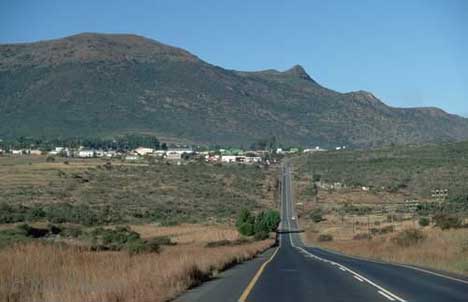Fear
Without cafes and newspapers it would be difficult to travel. A paper printed in our language, a place where in the evenings we try to rub shoulders with other men, enable us to mime in familiar gestures the man were were at homw, and who, seen from a distance, is so like a stranger. For what gives value to travel is fear. It breaks down a kind of inner decor in us. We can't cheat any more -- hide ourselves away behind the hours in the office or at the plant (these hours against which we protest so strongly alone). Thus I have always wanted to write novels in which my heros would say: 'What would I do without my office hours?', or again: 'My wife has died, but fortunately I have all these parcels to get ready for tomorrow.' Travel takes this refuge from us. Far from our own people, our own language, wrenched away from all support, deprived of our masks (we don't know the fare on the tram and everything is like that), we are completely on the surface of ourselves. But also, because we feel our soul is sick, we restore its miraculous value to every being and every object. A woman who dances without a thought in her head, a bottle on a table, glimpsed behind a curtain, each image becomes a symbol. The whole of life seems to be reflected in it, in so far as it sums up our own life at the time. When we are aware of every gift, the contradictory intoxications we can enjoy (including that of lucidity) are indescribable. And never perhaps has any country, except the Mediterranean, taken me so far from myself and yet so near.
Sin and hope
A man who can feel his links with one country, his love for a few men, who knows that there is always a place where his heart will find its resting place, already owns many certainties in his life. And yet, certainly, this can be insufficient. But everything, at certain moments, yearns for that land of the soul. 'Yes, it is there that we must return.' What is strange in finding here on earth the union for which Plotinus yearned? Unity expresses itself here in terms of sun and sea. The heart feels it through a certain taste of flesh which constitutes its bitterness and greatness. I learn that there is no superhuman happiness, no eternity outside the curve of the days. These paltry and essential goods, these relative truths, are the only ones that can move me. I have not enough soul to understand the other, 'ideal' ones. Not that we should behave as beasts, but I can see no point in the happiness of angels. All I know is that this sky will last longer than I shall. And what can I call eternity except what will continue after my death? What I am expressing here is not the creature's self-satisfaction with its own condition. It is something quite different. It is not always easy to be a man, even less to be a man who is pure. But to be pure means rediscovering that country of the soul where the throbbing of our blood mingles with the violent pulsations of the afternoon sun. It is a well-known fact that we always recognize our homeland when we are about to lose it. Those whose self-torments are too great are those whom their homeland rejects. I have no desire here to be brutal or to appear exaggerated. But what in fact denies me in this life is first of all what kills me. Everything that exalts life at the same time increases its absurdity. In the summer of Algiers I learn that only one thing is more tragic than suffering, and that is the life of a happy man. But this can also be the path to a greater life, since it can teach us not to cheat.
Many people, in fact, affect a love of life in order to avoid love itself. They try to enjoy themselves and 'make experiments'. But this is an intellectual attitude. You need a rare vocation to become a sensualist. A man lives out his life without the help of his mind, with its triumphs and defeats, its simultaneous loneliness and companionship. I think that we can often feel a secret shame at the sight of these men from Belcourt who work, defend their wives and children, often without a word of reproach. I certainly have no illusions. There is not much love in the lives that I am describing. I should rather say that there is no longer very much. But at least they have eluded nothing. There are words which I have never really understood, like that of sin. I nevertheless believe that these men never sinned against life. For if there is a sin against life, it lies perhaps less in despairing of it than in hoping for another life, and evading the implacable grandeur of the one we have. These men have not cheated. They were gods of the summer at twenty in their thirst for life, and they are still gods today, stripped of all hope. I have seen two of them die. They were full of horror, but silent. It is better like that. From the mass of evils swarming in Pandora's box, the Greeks brought out hope as the very last, as the most terrible of all. I know of no more moving symbol. But hope, contrary to popular belief, is tantamount to resignation. And living means not being resigned.
(Albert Camus, 'Love of Life' and 'Summer in Algier' in Selected Essays and Notebooks, Penguin Books 1970, pp. 58-9, 89-90)

Moksheungming
moksheungming@yahoo.com
2007.10.31